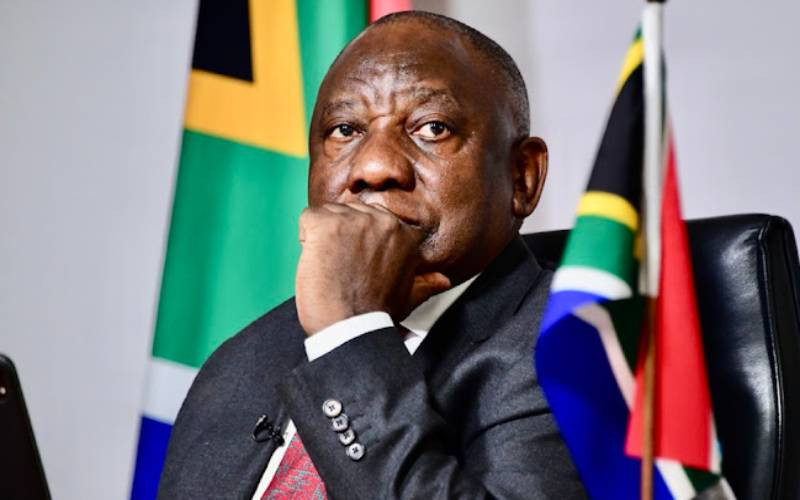South Africa braced for protests on Monday after a left-wing party called for a “national shut-down”, sparking fears of a repeat of unrest that turned deadly two years ago.
Authorities said there would be a heavy police presence to deal with any possible violence, after the third largest party, the Economic Freedom Fighters (EFF) urged South Africans to take to the streets and bring the country to a halt.
“The president has instructed law enforcement agencies to ensure that we do not have to see the repeat of those scenes that we saw back in 2021,” President Cyril Ramaphosa’s spokesman Vincent Magwenya told a press briefing on Sunday.
“The state has a responsibility to ensure that citizens can go on about their day… in a normal way and when doing so, that they are safe and that they are not subjected to any anarchy or any form of violence.”
At least 350 people were killed in July 2021 as protests sparked by the jailing of former president Jacob Zuma spiralled into riots and looting.
The EFF is demanding Ramaphosa’s resignation over his handling of South Africa’s sickly economy, electricity shortages and stratospheric unemployment.
In a statement on Saturday, the party told would-be protesters their actions “must be militant and radical” but to behave “peacefully” and watch out for “agent provocateurs” attempting to hijack the strike.
“No-one can stop a revolution,” EFF leader Julius Malema told supporters on Friday.
Ports, parliament, border crossings and the Johannesburg stock exchange, among others, will be targeted as key protesting points, Malema has said.
– ‘Lawlessness’ –
Some businesses have been threatened “with looting and other forms of violence” if they remain open, Magwenya said.
Some have already opted to pull down their shutters.
Police Minister Bheki Cele said last week that officers would be “out in their numbers” to protect those who wished to work, conduct business or travel.
Others have said that fears of nationwide chaos were overblown.
A large trade union has said it will join the strike but others have distanced themselves from it.
South Africa’s economy tumbled below pre-pandemic levels in the last three months of 2022.
The country has been battered by high unemployment, soaring inflation and waves of blackouts caused by breakdowns and capacity shortfalls at state energy provider Eskom.
Ramaphosa last week suggested Malema was jostling for political relevance ahead of national elections next year.
The EFF is polling below 15 percent of the vote nationwide.
“We know of a planned protest. To say there will be a national shutdown is misleading,” the National Joint Operational and Intelligence Structure, which coordinates security operations, said on Friday.
“Everything from business to services will be fully functional and operational and accessible. We are not going to allow lawlessness and acts of criminality.”
On Saturday, a Johannesburg court banned the EFF from shutting down schools, retail stores, businesses, trade and public roads as well as inciting violence, after South Africa’s leading opposition party, the Democratic Alliance (DA), asked it to prohibit the protest.
“The EFF has every right to protest, but the party has no right to hold South Africa hostage in doing so,” said DA leader, John Steenhuisen.



